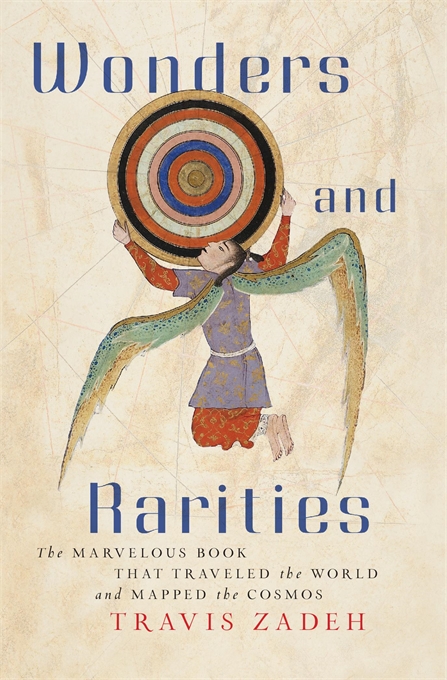The Centre for Magic and Esotericism
The Centre for Magic and Esotericism
Posted by Emily Selove
15 July 2023The Marvelous Book That Traveled the World and Mapped the Cosmos
by Travis Zadeh
https://www.hup.harvard.edu/catalog.php?isbn=9780674258457

Emily Selove’s informal review:
This is a remarkable book, in that it is extremely academically rigorous, while being simultaneously accessible to a wide audience and a genuine pleasure to read. The introduction draws you in, the writing style is gripping and lucid, and Zadeh’s profound erudition does not prevent him from speaking in a way that would be clear to any educated reader. He puts this book in the context of its own time, and also illuminates its reception in the West, in a way that convincingly demonstrates its pressing significance not only for an accurate understanding of history but for what it means to be human in a global world today.
Given the urgency of decolonising the study of the Middle East, this book makes an especially important contribution by showing that some of the rhetoric that modern scholars use when crediting Medieval Muslims and Arabs with the development of modern science and technology, in fact applies the same standards of what is valuable (i.e. what is purely rational and excludes wonder and spirituality) that lies behind so much destructive colonial thinking– that is to say, it suggests that only the values of the modern West matter as a yardstick when measuring the merits of any given cultural production. To remedy this, Zadeh inhabits the cosmos of Qazwini’s own work by illuminating the thought world within which it existed, describing, for example, the scope and impact of Ibn Sina’s philosophy in an unusually lucid manner. Thereby he shows the links between the reality Qazwini inhabited and the literary/philosophical world he was working in. Through this frame, basic concepts such as the four main schools of Sunni law are explained more clearly than I have ever previously seen done. The same is true of thorny philosophical questions such as the problem of evil, fate vs. free will, and the pursuit of knowledge and/or pleasure in Creation as a goal of human existence. Zadeh has long been my number one source of information in researching the works and historical environment of Siraj al-Din al-Sakkaki (d. 1229) and he has added further to that story here, so this book is of great use to me as a specialist in this region, in addition to being accessible and entertaining to a general educated audience. Together with its illustrations and its copious notes (which he compares to the marginalia that adorn later editions of the Book of Wonders) Zadeh’s book becomes itself a catalogue of wonders, which, like its object of study, is microcosmic.